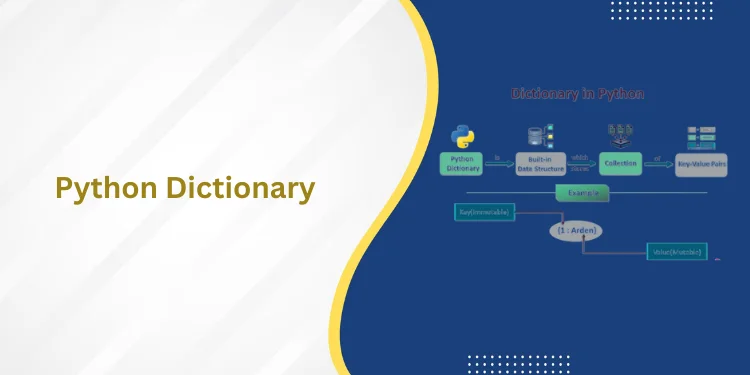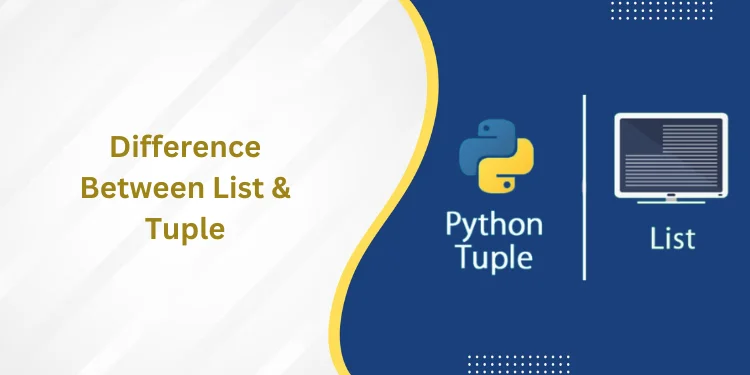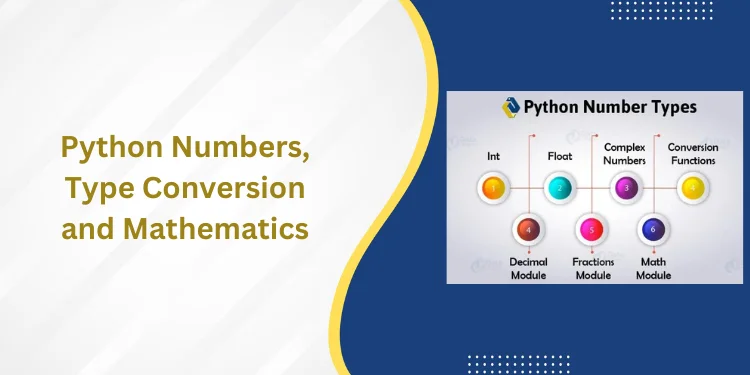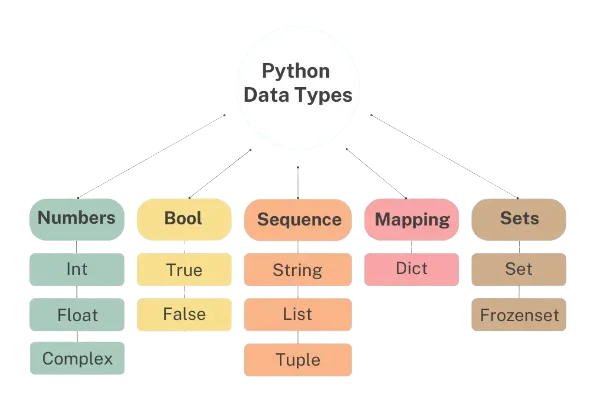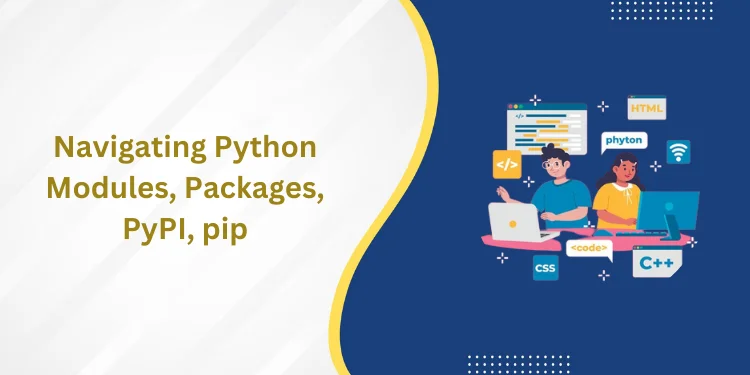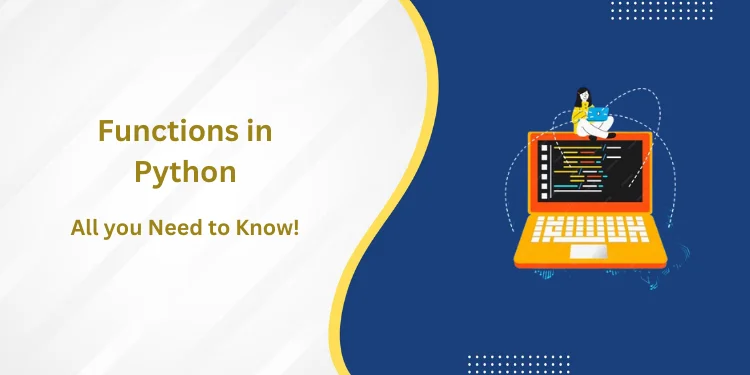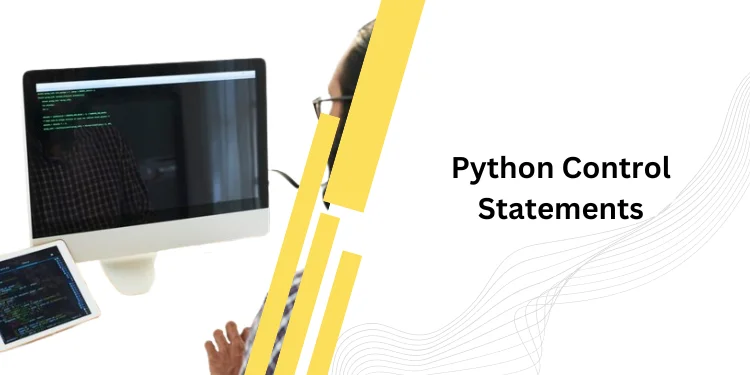Introduction to Object Oriented Programming
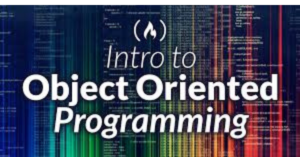
In this oops interview questions blog first lets talk about Object Oriented Programming (OOP) is an important concept to understand for many software development and IT roles. OOP is a programming methodology that revolves around objects and classes. With OOP, you create objects from classes and manipulate them as entities—rather than dealing with functions or commands—to create a program. In this overview, we’ll discuss the basics of object oriented programming and how it’s used in interviews.
At the core of the OOP concept are the class and object. Classes are templates that define the characteristics, features, behaviors, and properties of an object. These characteristics can be expressed as data fields or methods, which are just functions associated with the class. For example, if you were to create a class called “Car,” it would have characteristics like brand name, year manufactured, color, etc., all stored as data fields in a database.
Objects are instances of classes that have been instantiated in order to use them within a program or application. For instance, a car class might have multiple objects created from it such as a 2020 BMW M3 Coupe with carbon fiber trim. These objects give us the flexibility to create unique variables for each individual type of car without having to rewrite code each time an important example for the oops interview questions.
Object oriented programming is essential in interviews because it seeks to solve problems using inheritance structures and polymorphism (the ability for an object to take different forms). Questions about these concepts could come up during technical interviews related to software development or IT roles. It’s important for interviewees to demonstrate their knowledge of OOP by providing well thought out answers that explain how they would solve specific challenges using this method.
To help prepare for oops interview questions you must have a better understanding of the topic and this blog on oops interview questions will help you in clearing an oops interview questions that are frequently asked.
Important aspects of Object Oriented Programming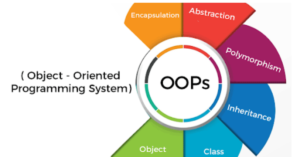
One of the main benefits of object oriented design is that it makes it easier to manage complex codebases and is an important oops interview questions. By organizing your code into objects, you can break down large pieces of information into smaller chunks, making them easier to manipulate and maintain. Furthermore, OOP makes it easier to reuse code and share it between multiple applications.
At its core, OOP relies on two fundamental components: classes and objects. Classes serve as templates for creating new objects, which are individual instances of the class. Classes contain the instructions needed to create objects with their associated properties, such as size or color for example.
Abstraction is another essential component of object oriented design. It refers to simplifying large pieces of data in order to make them more manageable. Abstraction works by focusing on only certain aspects of a problem while ignoring all other details. This reduces complexity and makes it easier for developers to manipulate data without having to understand all the nuances behind it.
Encapsulation is closely related to abstraction and allows developers to bundle data together in order to reduce complexity even further. It involves grouping properties together inside a single logical unit known as an object class or package so that they can be manipulated in a single container rather than individually outside it — making it simpler for programmers to work with complex data sets quickly and easily. Some important answers to the oops interview questions.
Benefits of OOP
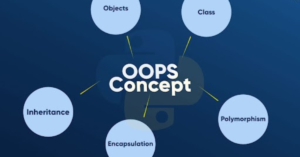
Object oriented programming (OOP) is a powerful and popular programming paradigm that allows for better code organization, increased productivity, and improved reliability. This blog post oops interview questions will cover the various benefits of OOP, such as abstraction, encapsulation, modularity, code reuse, scalability and more.
Abstraction is one of the primary benefits of OOP. Abstraction allows programmers to represent real world problems in a simplified way by hiding unnecessary details from the user. This helps make code easier to understand and maintain by focusing on the most essential pieces of information.
Encapsulation is another useful feature of OOP. It ensures that data within an object is kept secure and private by restricting access to its members. It also encourages code reusability by allowing objects to interact without directly affecting each other’s internal state.
Modularity is also a key benefit of OOP. Modular programming allows developers to break down complex systems into smaller components that can be independently tested and maintained. By creating separate modules for various features or functions, it becomes much easier to make changes or updates without having to rewrite an entire program from scratch.
In addition, OOP facilitates the reuse of code since classes can be reused across different projects without having to write lengthy code blocks over again. This not only makes programs more efficient than using traditional programming paradigms but also saves time and reduces the effort needed when developing new applications or making changes to existing ones.
Lastly, OOP makes programs more scalable since they are designed with extensibility in mind. This means that developers can easily add new features or modify existing ones without needing to rewrite large sections of their codes. As such, OOP provides a good amount of exposure to increase productivity and is an important oops interview questions.
OOPS Interview Questions for Freshers
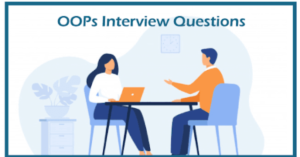
Are you preparing for an OOPS (Object Oriented Programming) Interview? If so, you’re probably getting ready to answer some tricky oops interview questions. Don’t worry, we’ve got you covered. Here are some of the most common oops interview questions for freshers and professionals alike.
First, let’s talk about Object Oriented Programming. OOP is a type of programming language which emphasizes on objects rather than procedural code or actions. Such objects are usually data structures combined with functions or methods that act upon the object’s data. The main advantage of using this type of programming language is that it allows for code reuse, since the same code can be reused in different scenarios.
Next, let’s discuss classes and objects in oops interview questions. Classes are blueprints for creating objects; they define the structure and behavior of a set of objects. On the other hand, objects are instances of classes which embody both state and behavior; for example, a Person class might contain data such as name and age, but also methods such as get Name()which returns the name of the person object instance.
Finally, abstraction is an important concept to discuss when talking about OOP. Abstraction refers to any technique which reduces complexity by hiding unnecessary details from its audience. This allows programmers to focus on certain aspects
of their program without being distracted by details irrelevant to their task at hand. For example, a Car class could contain a drive()method without needing to know how exactly that car engine works internally.
These are just some of the most common oops interview questions for freshers and experienced professionals. Asking these questions in an interview will help you evaluate your candidate’s understanding also refer these oops interview questions to aspirants you know.
OOPS Interview Questions for Professionals
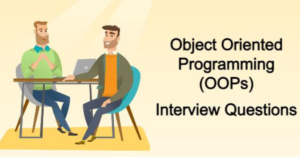
If you’re preparing for a job interview that involves oops interview questions, you’ll want to familiarize yourself with the fundamentals of OOP before your interview. Reviewing oops interview questions can help you assess your knowledge and understand what topics potential employers are looking for when it comes to OOP.
To start, let’s review the basics of OOP. Object oriented programming is a type of programming language that uses “objects” – collections of data and instructions – that interact with each other to accomplish tasks. OOP relies on classes, which are templates for objects, to create and manage objects.
When preparing for an OOP interview, it’s important to be able to answer questions about objects, classes, inheritance, polymorphism and abstraction. Employers may ask you to explain the purpose and benefits of using objects in a program or demonstrate how an object interacts with its class. It’s also important to be able to explain how inheritance works and how it can be used make code more efficient. Be prepared to speak in depth about polymorphism and abstraction as well as their advantages and disadvantages in programming.
For freshers or those just starting out with OOP, some common questions include “What is object oriented programming?” or “How do objects interact with classes? ” Experienced professionals should expect more technical questions such as “Explain how inheritance works in a program?” or “How can you use abstraction to reduce code duplication?”
Being prepared for your interview is key if you want to land an OOP job. Brush up on your knowledge beforehand by studying relevant material
Class vs. Object in OOP Sections: Examples Of Popularly Used OOPS Languages Sections: Interview Questions for Object-Oriented Programming
When discussing Object Oriented Programming (OOP), it is important to understand the distinction between Classes and Objects. Classes are like cookie cutters that enable us to create objects with a specific set of features, behaviors, and characteristics. Objects are the “things” that we create from classes. They have properties, which are values that represent the state of an individual object, and methods, which are functions that allow an object to manipulate itself or interact with other objects. These ideas can be further demonstrated by examples of some of the most popularly used OOP languages: Java, C#, Python, and JavaScript.
Interviews for Object Oriented Programming positions often focus on these concepts in order to gauge a candidate’s understanding. When preparing for such interviews, it is important to brush up on your knowledge and gain a better understanding of OOP fundamentals such as Classes & Objects, Encapsulation and Inheritance. Here are some sample oops interview questions you might come across in an OOP interview:
1) What are the main differences between Classes & Objects?
2) What is Encapsulation and why is it used?
3) What is Inheritance and how does it work?
4) Explain the differences between Interface & Abstract classes?
5) Why does Java not support multiple inheritance?
6) How do you debug a problem related to inheritance in Java?
7) Name three principles of Object Oriented Programming (OOP)?
8) What do you understand by polymorphism in Object Oriented Programming?
9) How does Abstraction aid software development process?
10) Give a basic example of how classes are used
Note: Click Here to know more about Coding
Relevant Tips For Answering OOPS Interview Questions
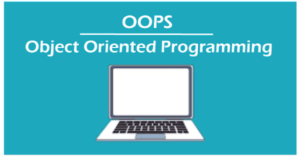
Are you looking to ace your next OOPS interview? If so, there are a few important tips you should keep in mind. Preparing for a job interview can be daunting, but if you take a structured approach, the process can be much smoother. Here are some relevant tips that will help you tackle your upcoming OOPS interview with confidence.
The first step is to research the company and position you are applying for. Understanding what the employer is looking for and how your skills fit their needs will help you develop more relevant responses to their questions. Additionally, familiarize yourself with object oriented principles and prepare examples of how you have applied them in past projects or jobs. This will show that you understand the fundamentals of OOPs and can use them in practice.
Next, brush up on all of the concepts related to Object Oriented Programming such as objects, classes, inheritance, abstraction, encapsulation, polymorphism and more. Pay special attention to design patterns as they are an integral part of OOPs which many employers focus on during interviews.
It is also important to practice coding questions which related to oops interview questions so that you can demonstrate your technical proficiency during interviews. Take some time beforehand to prepare answers and run through different scenarios so that you feel confident when it comes time for your interview. Coding questions may cover topics such as sorting algorithms or data structures which require knowledge of fundamental programming concepts as well as object oriented principles.
In addition to coding questions, employers may also ask about debugging techniques since OOPs errors can often be hard to spot or take time to fix if not done correctly. Brush up on best practices such as using system logs or debuggers.
Frequently Asked Questions
1. What are the 4 basics of OOP?
In this oops interview questions blog, basically, There are four of the main principles of object-oriented programming they are
- Abstraction
- Encapsulation
- Inheritance
- Polymorphism
2. What are OOPs and their types?
In this oops interview questions blog, is a model that provides different types of concepts, such as inheritance, abstraction, polymorphism, etc. These concepts target to implementation of real-world entities in programs, and they create working methods and variables to reuse them without compromising security.
In this oops interview questions blog, in object-oriented programming (OOP), objects are the things you think about first in designing a program and they are also the units of code that are eventually derived from the process.
4. In which language OOPs is used?
In this oops interview questions blog, OOPs is used in many languages like Python, Ruby, and Groovy are dynamic languages built on OOP principles, while Perl and PHP have been adding object-oriented features since Perl 5 and PHP 4, and ColdFusion since version 6.
5. What is polymorphism in OOPs?
In this oops interview questions blog, is one of the important concepts of object-oriented programming and describes situations in which something occurs in several different forms. In other words, it describes the concepts through which you can access objects of different types through a similar interface





